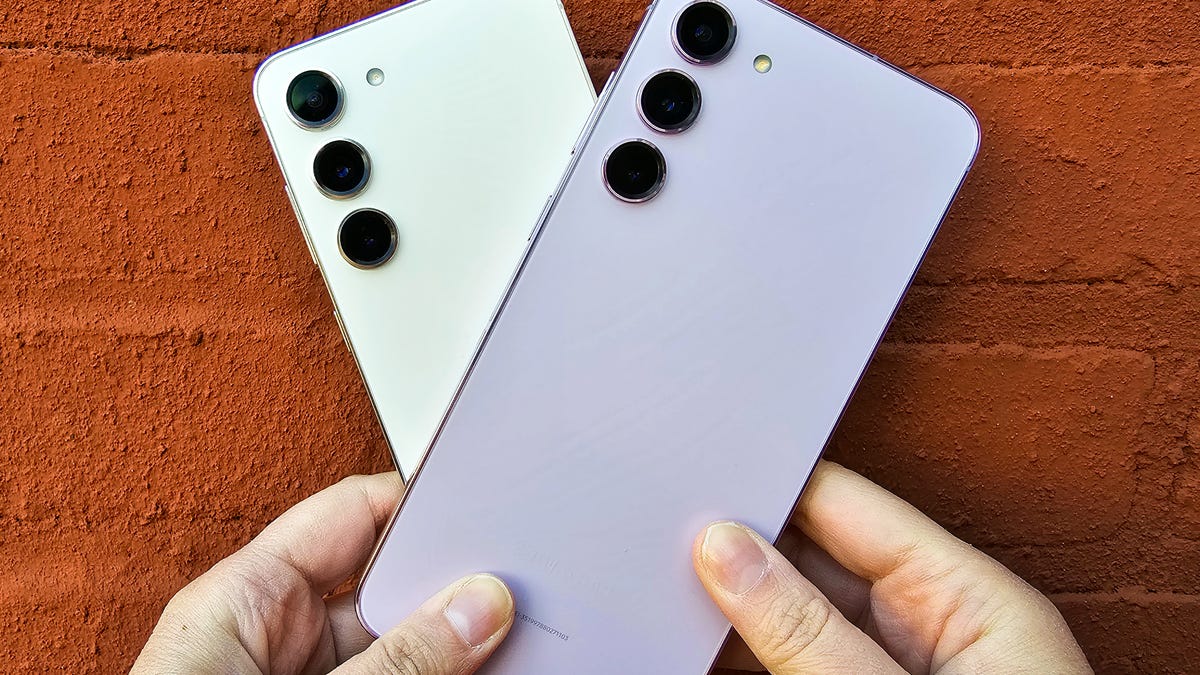Meet Samsung's Answer to ChatGPT: A New AI Model Called Gauss
Samsung's Gauss AI model can generate images and summarize documents, but we don't know which products it will arrive in yet.

The Galaxy S23 (left) and S23 Plus are among the phone-maker's latest flagship devices.
Samsung on Wednesday debuted a new generative AI model called Gauss, its answer to ChatGPT and other similar AI tools, marking yet another sign that AI is going to play a big role in future tech products. Samsung employees are currently using Gauss, but the company says the tech will expand to future products.
Gauss, which was announced during Samsung's AI forum on Wednesday, consists of three parts: Gauss Language, Gauss Code and Gauss Image. The language portion can handle tasks like writing emails, summarizing documents and translation, according to Samsung's press release, which is similar to other AI helpers from companies like Google, Microsoft and OpenAI, the creator of ChatGPT. Samsung's AI coding tool was created for assisting with software development, while Gauss Image can generate and modify images and is likely intended for creative use.
Samsung named the model after the renowned German mathematician Carl Friedrich Gauss, who lived during the late 18th and middle 19th centuries and is known for his influential work in number theory and geometry.
"Furthermore, the name reflects Samsung's ultimate vision for the models, which is to draw from all the phenomena and knowledge in the world in order to harness the power of AI to improve the lives of consumers everywhere," Samsung said in its announcement.
Samsung also says it's making efforts to ensure AI is being used safely through its AI Red Team, which tackles areas like data collection and AI model development. Crucially, Samsung describes Gauss as an "on-device AI," meaning that it will process data on the device itself rather than sending it to the cloud, which is generally better for privacy and speed.
Although Samsung hasn't mentioned when Gauss will arrive in a future product, there's a chance it could be included in the company's expected Galaxy S24, which is due early next year. Samsung's Galaxy S phones typically serve as a showcase of Samsung's latest mobile technology and influence other mobile products like its high-end Galaxy Z foldables and more affordable Galaxy A devices.
The announcement also comes after Samsung announced its newest mobile chip, the Exynos 2400, which is optimized for AI. That chip boasts a 14.7x boost in AI performance and enables text-to-speech generation, according to Samsung.
Generative AI, software that can create content based on prompts after being trained on data, has taken the tech world by storm in 2023. OpenAI's ChatGPT, which launched in late 2022, set off an AI frenzy and pushed companies like Google and Microsoft (which backs ChatGPT) to infuse AI across their product lineups. OpenAI also just held its developer conference on Nov. 6, where it announced that users will be able to create custom GPT chatbots programmed for specific purposes, opening up the technology's potential.
Gauss further hints that the tech could shape future smartphones, considering Samsung is the world's largest smartphone-maker by shipment volume, according to market research firm International Data Corporation. Samsung typically announces its new Galaxy S phones in the first couple of months of the year, meaning the S24 series could arrive in January or February.
Editors' note: CNET is using an AI engine to help create some stories. For more, see this post.

